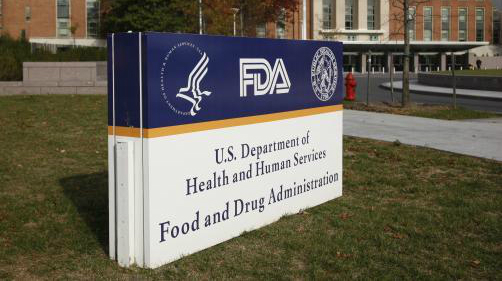FDA fires broadside at CytoDyn over COVID-19 antibody data

In a rare move, the FDA has publicly accused US biotech CytoDyn of misrepresenting clinical trial results for leronlimab, an antibody being developed for COVID-19.
It's not uncommon for drug developers put a positive spin on lacklustre clinical data, but CytoDyn's attempts seems to have irritated the US regulator, specifically relating to its use of subgroup analyses to try to indicate a benefit for leronlimab.
The biotech has run two studies to try to repurpose HIV and cancer candidate leronlimab as a COVID-19 therapy, neither of which achieved their primary objectives, but has said it will nevertheless file the data with regulators in countries including India and the Philippines.
The 86-patient CD10 trial looked at the antibody's potential in mild-to-moderate COVID-19, but failed to show a benefit on any measures, including the primary endpoint of "total clinical symptom score", encompassing fever, muscle aches, shortness of breath, and cough, according to the FDA.
Leronlimab was also no better than placebo when it came to secondary endpoints including survival, time to symptom resolution, and time to return to normal activity.
A larger trial involving 394 severe to critically ill COVID-19 patients – called CD12 – also failed to find any effect of the drug on the main endpoint (mortality) or secondary measures such as the length of time patients spent in hospital, said the agency.
In its analysis, CytoDyn zeroed in on a subgroup of 62 critically ill patients on ventilation who were treated with the CCR5 antagonist, arguing that it significantly reduced all-cause mortality, and achieved a six-day reduction in hospital stay.
The FDA begs to differ, saying: "the data from CD12 illustrated imbalances in mortality among subgroups, some favouring leronlimab and some favouring placebo."
It adds that "none of these analyses met statistical significance when using established and reliable analytical methods that correct for multiple comparisons."
Unsurprisingly given that assessment, the regulator turned down CytoDyn's request for emergency-use authorisation of leronlimab in critically-ill patients, although it has said it will meet with the company to discuss the design of another trial.
"With the conclusion of both the CD10 and CD12 clinical trials, it has become clear that the data currently available do not support the clinical benefit of leronlimab for the treatment of COVID-19," said the regulator.
Shares in the company fell sharply after the FDA issued its statement, prompting the company to hold an investor meeting to state its case, and published updated results from the study that it says reinforce the benefits of the drug and show it hit most secondary endpoints.
CEO Nader Pourhassan said repeatedly on the call that the company was grateful to the FDA for its input, that there was no factually incorrect information in the agency's statement, and that he was embarrassed by questioning that implied the company was at odds with the regulator.
He added that the company had decided not to pursue development in the US because there are relatively few critically ill patients there, but that situation is different in countries like India, the Philippines and Brazil.
A Brazilian trial in 300-plus critically ill patients is underway, said Pourhassan, adding that will likely be required for approval, while additional evidence from studies may also be needed in India.
At the moment the situation for the emergency use application in the Philippines is still in flux, he said, but it might be possible to secure that on the strength of the updated CD12 results.
Complicating the picture, CytoDyn is also facing a class action lawsuit claiming the company made false and misleading statements about leronlimab's potential in COVID-19. It has said it will "vigorously defend" itself against any such accusations.











